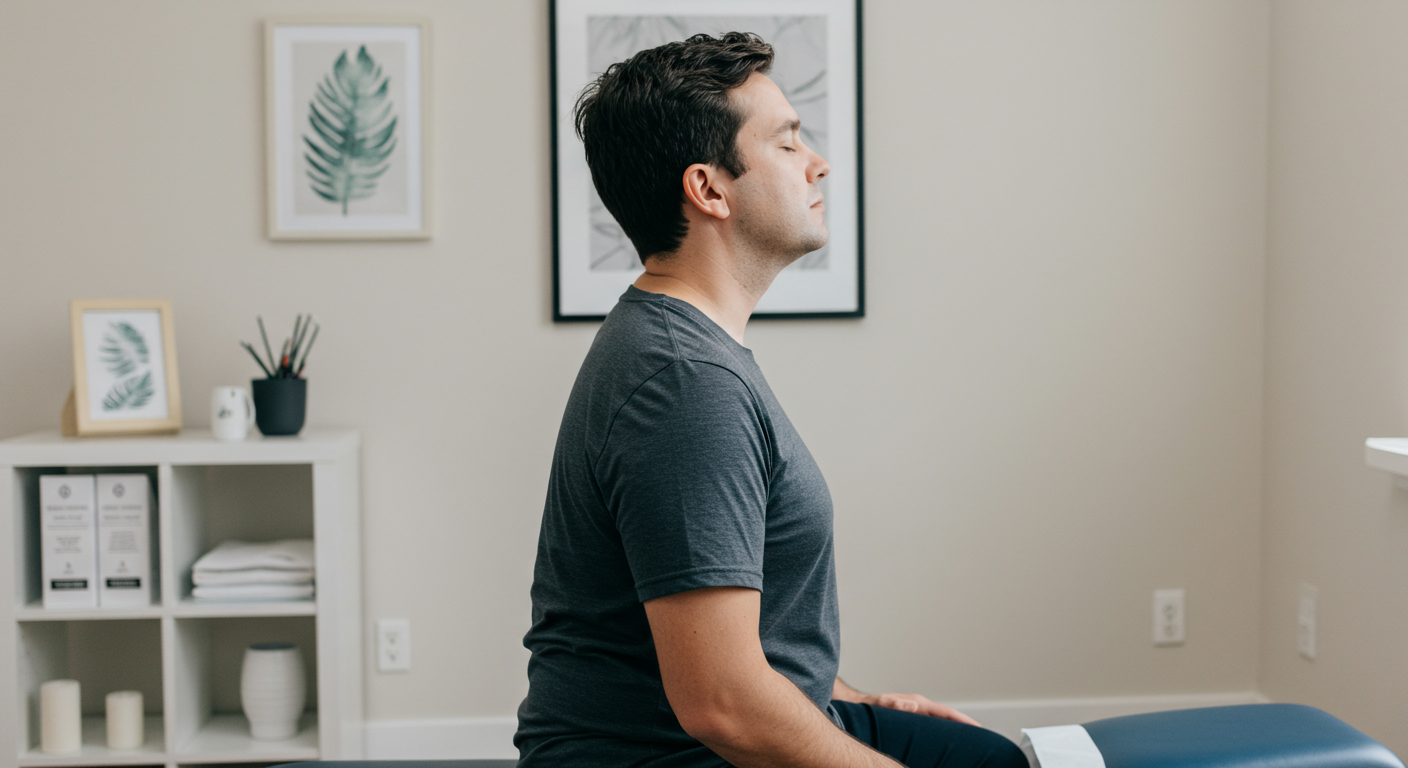Most people think of posture as just a matter of sitting up straight, but its impact goes far beyond appearances. Poor posture can lead to chronic pain, reduced mobility, and even internal health issues. Whether you spend long hours at a desk, frequently use your phone, or simply have developed bad habits, understanding how posture affects your body is crucial for long-term health.
Jump To:
TL;DR Quick Guide
- Poor posture contributes to chronic pain, fatigue, breathing issues, and even digestive problems.
- It affects your spine, muscles, joints, and nervous system, leading to long-term health concerns.
- Specific posture focused chiropractic methods like Advanced BioStructural Correction can prevent these issues.
- Strengthening core muscles and practicing proper sitting/standing habits help maintain good posture.
- Addressing poor posture early prevents long-term damage and improves overall well-being.
How Poor Posture Affects Your Health
1. Chronic Pain and Joint Issues
- Slouching strains the muscles and joints, leading to neck, back, and shoulder pain.
- Uneven weight distribution causes excessive wear on hips and knees, increasing the risk of arthritis.
- Prolonged poor posture can contribute to degenerative spinal conditions like herniated discs.
2. Reduced Lung Capacity and Breathing Issues
- A hunched posture compresses the lungs, restricting oxygen intake.
- Shallow breathing results in fatigue, low energy, and poor focus.
- Proper posture supports diaphragmatic breathing, which improves oxygen flow and overall vitality.
3. Digestive Problems
- Slouching can compress abdominal organs, slowing digestion.
- Poor posture may contribute to acid reflux, bloating, and constipation.
- Keeping the spine aligned supports optimal digestion and nutrient absorption.
4. Weakened Core and Muscle Imbalances
- A weak core leads to poor posture, creating a cycle of discomfort and instability.
- Overworked muscles in the lower back and neck lead to stiffness and tension.
- Strengthening core muscles helps support the spine and prevents injuries.
5. Mental Health and Stress Levels
- Poor posture can negatively impact mood and confidence, leading to increased stress and anxiety.
- A slumped position may contribute to feelings of fatigue and low self-esteem.
- Proper posture improves blood circulation, energy levels, and overall well-being.
Key Takeaways
- Poor posture isn’t just a cosmetic issue—it affects spinal health, breathing, digestion, and even mood.
- Long-term bad posture leads to chronic pain, muscle imbalances, and joint problems.
- Simple adjustments in sitting, standing, and movement can prevent posture-related health concerns.
- Strengthening the core, practicing ergonomic habits, and seeking chiropractic care can help maintain a healthy posture.
- Awareness and early intervention are key to preventing long-term damage and discomfort.
FAQs
1. How can I tell if my posture is bad?
Signs of poor posture include slouching shoulders, a forward head position, frequent back pain, and discomfort after long periods of sitting or standing.
2. Can poor posture cause headaches?
Yes, forward head posture and tension in the neck and shoulders can lead to tension headaches and migraines.
3. How long does it take to correct poor posture?
Improvement depends on consistency. With a method like Advanced BioStructural Correction, most people notice an immediate improvement. Over several weeks/months very significant changes usually occur.
4. Does sitting all day make posture worse?
Yes, prolonged sitting, especially with a rounded back and forward head position, leads to muscle imbalances and postural strain. Standing breaks and ergonomic adjustments help prevent damage.
5. Can chiropractic care help with posture correction?
Regular chiropractic adjustments cannot help realign the spine, but can relieve tension, and improve posture-related discomfort, especially when combined with posture-strengthening exercises. To truly correct posture, you need a specific method like Advanced BioStructural Correction to enable realignment.






